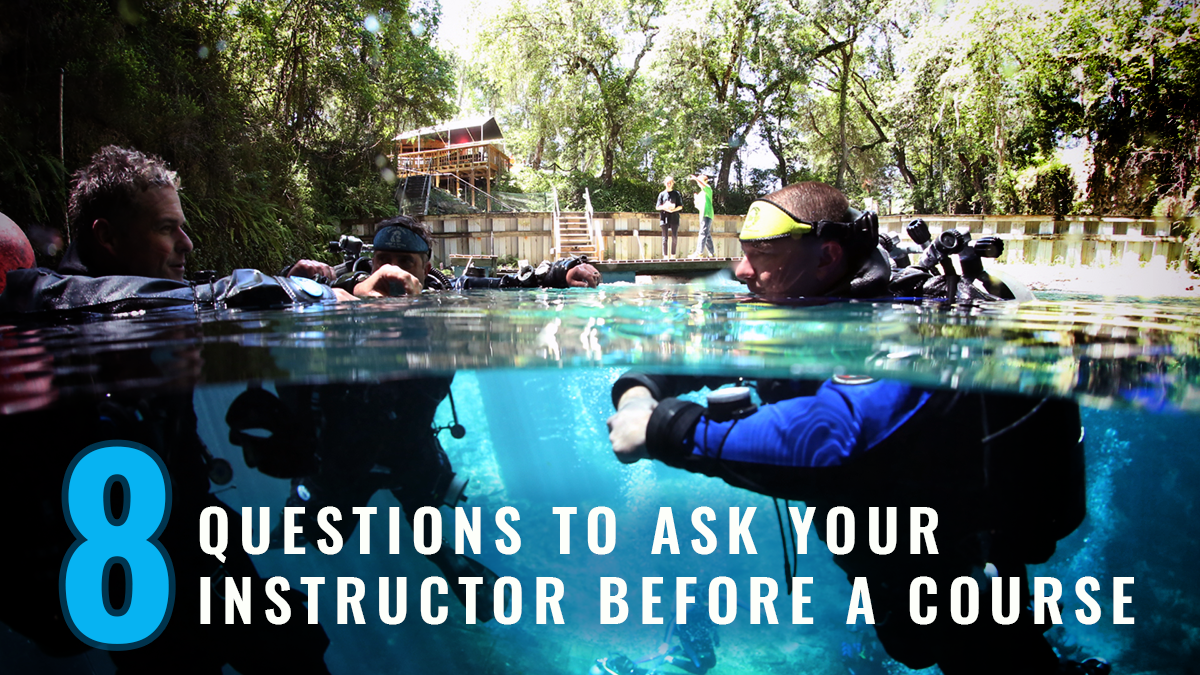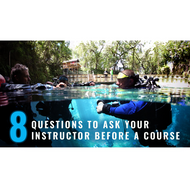What to Ask Your Potential Instructor Before You Sign Up for a Course
Posted by Extreme Exposure on Aug 29th 2020

Choosing who your scuba instructor will be is the single most important decision you will make for the success and safety of your diving. Regardless of who the agency is, evaluating your instructor prior to registering for a course is crucial. Here is a breakdown of some questions you should ask your potential instructor.
1. What kind of diving do you do outside of teaching?
You want to make sure the instructor is an active diver and working on their own skills regularly but also that they are a good role model for the kind of diving you aspire to do. Whether that’s cave diving, technical diving, or maybe more specifically project diving, it’s important to work with an instructor who can help your goals come to fruition.
2. Ask them about their history.
It’s always good to know where someone came from. What was their diving path like? What sort of environments have they been diving in? How many dives have they done and how long have they been teaching? Finding the answers to these questions will help give a better understanding of them as a diver.
3. How many students are in the class?
Depending on the instructor and sometimes the agency, the number of students enrolled in a class will vary. It's important to know this in advance. Cheaper courses will generally have more students enrolled. This will result in you having less one-on-one time with the instructor and having to wait longer for your turn. Generally a class with 4 or less students is a good place to start.
4. What can I expect over the course timeline?
Make sure you know how much in-water time you will get versus how much time will be spent in a classroom doing theory. Is there an online portion you can do in advance? When will the days typically start and end? Is the course on consecutive days? This is key to understanding your time commitments, but also in understanding how much time you will spend in the course for how much money it costs.
5. What equipment do I need?
Regardless if you want to rent or buy gear for the course, you need to know what gear is expected. Do you need to manage the rental on your own prior to the class? Are you familiar with the equipment? If not, are the resources available to help you prepare? You will feel better on day one if you know this in advance.
6. What are the course outcomes?
When you have finished the course and passed (which is not guaranteed) what will you be able to do? What depth, gases, limits will you have? What sort of skills will you be taught in terms of kicks, safety, and equipment? What happens if you don’t pass? These are all important to note so you can mentally set yourself up for success.
7. Ask if you can book a coaching day or observe a class.
A great way to get a feel for someone’s diving is to actually go diving with them. A great way to get a feel for an instructor's teaching is to watch them teach. So see if you can book a coaching day in advance to work on skills that you need to brush up on. If you do book a coaching session, be prepared that they might have a fee for it. If you’re not a diver yet, see if you can watch them teach a class to give you an idea of what their teaching style is and how clearly they explain key concepts to their students.
8. How do they look in the water?
If you get to dive with them, evaluate what they look like in the water. Are they neutrally buoyant and relaxed? A good instructor is in complete control of their position in the water at all times.
Curious to learn more about setting yourself up for success with your dive training? Check out UK instructor and explorer Rich Walker’s recommendations for choosing the right training and instructor.

